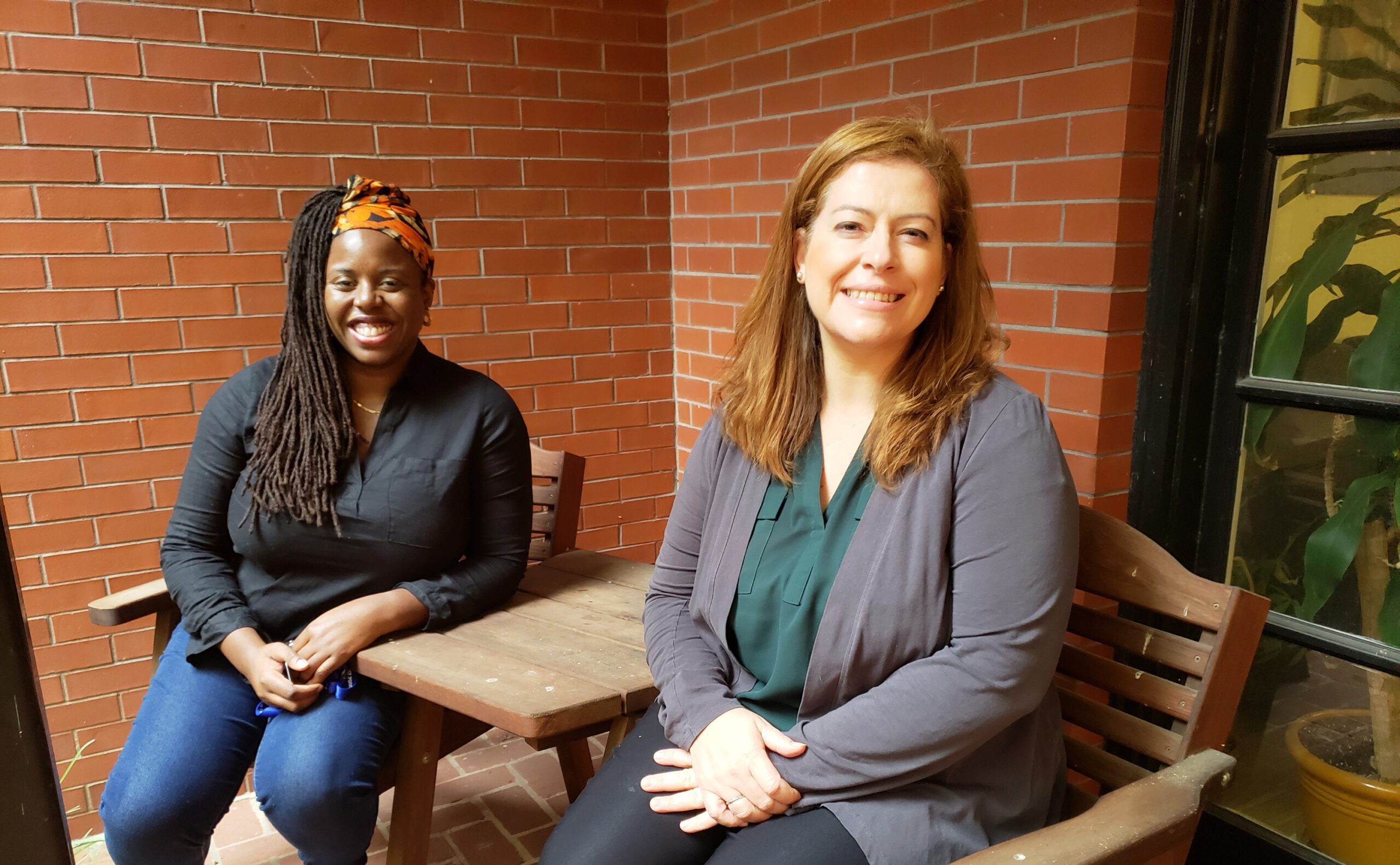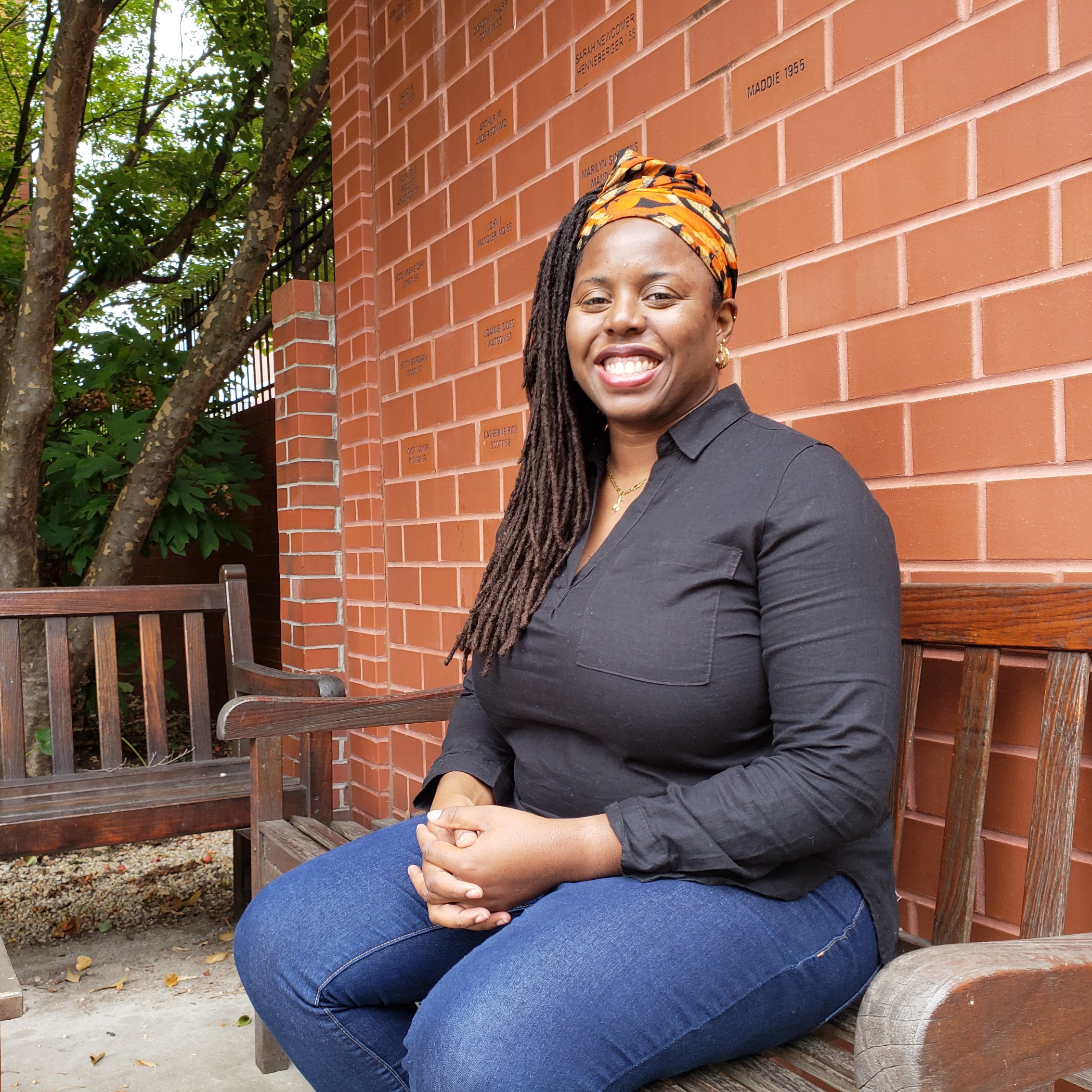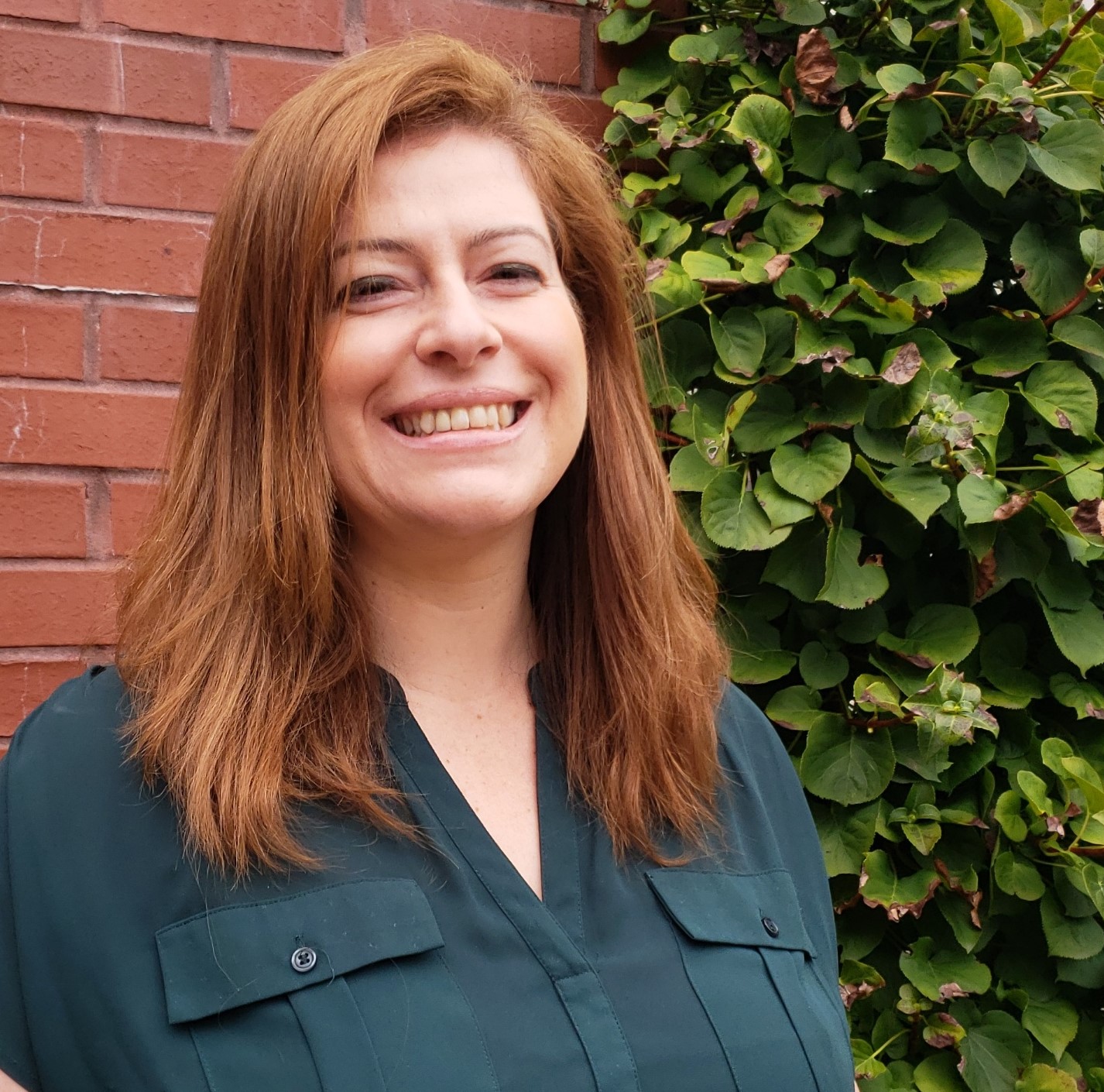“It used to be you went to doctor, got a shot, and you were better or, unfortunately, you died. Now there’s a lot more chronic disease, and the beauty of the nursing PhD is that we learn a healing perspective, because a shot doesn’t cure you anymore,” says Melissa Hladek.
“That’s so important, we see the holistic view, we consider if a person lives in a food desert or has transportation issues. We look at their ethnic identity and related stressors—everything else that moves us beyond the medical model to a wellness model,” says Joyell Arscott.
What started as a simple group photo to celebrate the Johns Hopkins School of Nursing’s 5 resident post-docs (Joyell Arscott, Lucine Francis, Melissa Hladek, Minhui Lui, and Nishit Patel) turned into a transformative conversation between Melissa, who is of Puerto Rican descent, and Joyell, who is black American of Jamaican descent. They discussed the unique perspective nurse researchers bring to the table and the role our ethnic identity plays in our own lives and how it plays out in our research.
Melissa Hladek PhD, CRNP, FNP-BC graduated from JHSON in 2018 and Joyell Arscott, Ph.D., R.N., ACRN graduated from Duke in 2018. Melissa’s research examines the psychosocial intersection of stress, resilience, and aging; Joyell studies violence and trauma in women, and adolecents’ risk for contracting HIV. Their specialties are unique—and they met on the spot for the photo—yet Melissa and Joyell related to each other’s work in an instant.
“One thing about the nursing perspective is that we can talk to people in a different groups because we are not disease specific,” Joyell says. “Other disciplines are hyper-focused in their perspective, focused on one condition,” says Joyell, who was often the only nurse on projects at other schools.
“Even many of the centers at NIH are disease specific,” adds Melissa, who is often the only nurse on projects at NIH, the site of her post-doctoral research. They agree that it’s important to have a nurse researcher there to connect the dots.
Melissa and Joyell also agree that the soft stuff—the psychosocial factors that build up to acute health crises—are more important. In Joyell’s research, it’s the psychosocial stressors—which could be ethnicity or community trauma—that make it more likely that a person will get HIV, “But it takes too long for someone to care about the habit that’s driving the physical response.”
“It’s our job to figure out how to link the soft stuff to the hard stuff so that people realize it matters,” says Melissa. In her case, she’s studying biological age as a health disparity, and identifying a variety of biomarkers in sweat.
Having doctoral nurses at the research table is key for moving us as a society beyond a medical model into a place where “care” goes beyond disease and happens before disease. As nurse researchers, Melissa Hladek and Joyell Arscott are part of the paradigm shift from disease management to health and wellness—both through their unique perspective and through the research they conduct.
Post-Doctoral Opportunities at Johns Hopkins School of Nursing

ABOUT THE AUTHOR: SYDNEE LOGAN
Sydnee Logan is the Social Media and Digital Content Coordinator for Johns Hopkins School of Nursing. She shares what’s going on here with the world.



